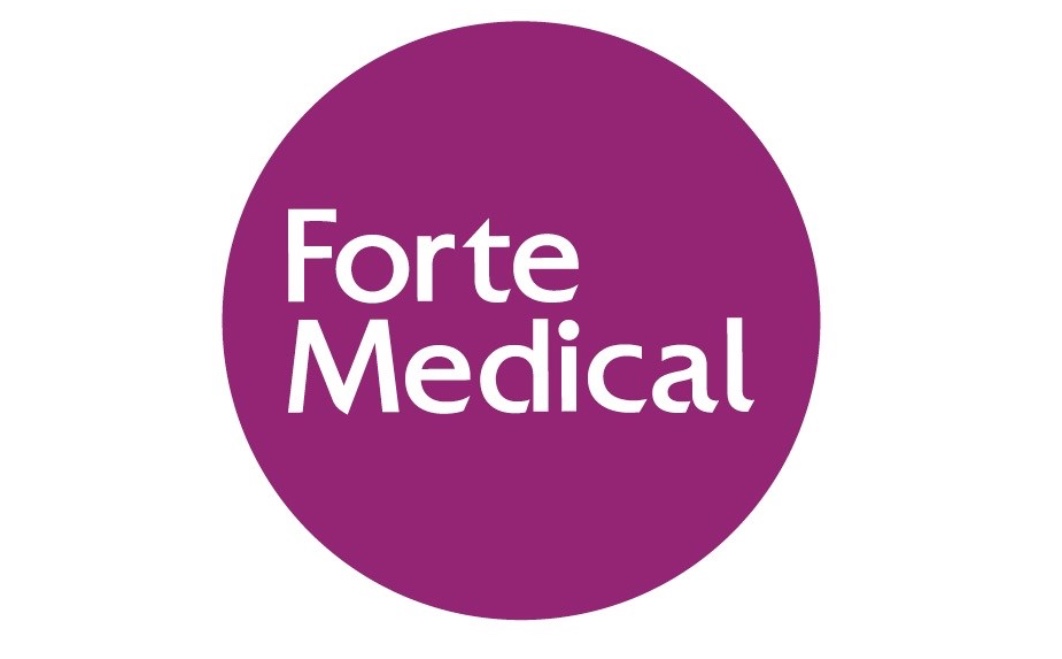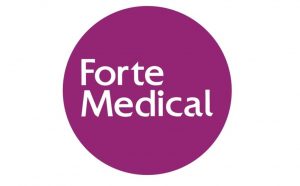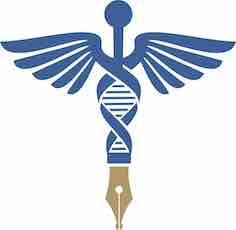
URINE TROUBLE : WHY A DIAGNOSTIC STANDARD IS OVERDUE
A Review Of Proceedings
“It seems criminal to us that we are wasting so much time and money on bad sample collection and reading and re-readings, as this has a profound effect on the patient as well as the NHS.”
Louise de Winter, Chief Executive, The Urology Foundation
We have received a number of requests for further information following our Forum at the end of last month (to which all MJA members were invited) and have pleasure in providing this link that will enable you to watch the full agenda of presentations and the insightful panel debate that followed.
For those of you who would prefer a five minute read, we have prepared the following review and would welcome the opportunity to engage with you over further information or queries that you might have.
The Context of The Need For a Urine Diagnostic Standard
Increased AMR will see areas of surgery and treatment, such as chemotherapy, unable to continue. Antibiotics are being over prescribed and over used; it’s a global issue and if there is no progress in overcoming, it is estimated there will be a further 10 million deaths every year worldwide.
This was the stark context in which Philip Howard, NHS Improvement HCAI and AMR Project Lead and Consultant Antimicrobial Pharmacist, Leeds Teaching Hospitals NHS Trust opened proceedings at the Forte Medical Forum held last month at The Royal College of Physicians.
The Forum, convened to discuss “Urine Trouble: Why A Diagnostic Standard is Overdue” debated the importance of urine specimens in the diagnosing of illnesses and the need for the adoption – overwhelmingly supported by those present – of a gold standard that would ultimately save delayed diagnosis, patients’ lives and millions of pounds for the NHS and wider healthcare sector.
Research shows that of the 65m + urine specimens collected every year, up to 22.5% are unreliable. This represents 14.6 million patients who cannot be diagnosed or treated from their urine specimen which in turn leads to inadequate treatment and increasing costs. Research also shows contamination rates in the UK vary from 0.3% to over 70%.
Philip Howard presented an overview of the global and national statistics around antimicrobial resistance (AMR) and actions being undertaken by the UK Government and the NHS to respond to the issue. He said that whilst there had been a year on year reduction of c.difficile, MRSA and MSSA infections by around 80% – the big problem now is e-coli blood infections. 47% of gram-negative blood infections are caused by UTIs and treating a UTI relies on accurate midstream urine collection.
The Clinical Evidence
Clinical research presented by Professor Frank Chinegwundoh MBE, Consultant Urological Surgeon, Barts Health NHS Trust, and Michael Adamczyk and Michelle Jie, Doctors of Obstetrics and Gynaecology at Royal Surrey County Hospital NHS Trust, about the use of MSU collection in their respective fields, highlighted the efficacy of the Peezy Midstream, as an alternative urine specimen collection process.
Interim results from the Barts Quality Improvement Study showed that contamination rates had been reduced from an historic 17.36% to just over 1.5%. Prof Chinegwundoh said: “We have used Peezy Midstream with patients in clinic and found fewer repeats; the system also delivers accuracy, efficiency and hygiene. This (on-going) Quality Audit is designed to substantiate our findings.”
Similar initial findings were shared in the Surrey study along with positive feedback on the usability of the device. The latter point was further substantiated with the sharing of this year’s NIHR usability study demonstrating that patients liked the product, found it easy to use, hygienic and would prefer to use again if the option was available.
The Economics of Innovation
It was recognised that two of the greatest barriers to innovation adoption were cost, and with that value; and creating the right environment and culture in which change can happen.
Lord Carter’s review highlighted the need for £5 billion of savings within the NHS and this theme was picked up by Professor Trevor Williams, Economist and Visiting Professor at University of Derby. The level of funding to the NHS, the second largest item of public spending, has decreased and one of its biggest risks is the ageing population; it costs nine times as much to look after someone aged 80-90 compared with someone aged 30.
The consensus that the NHS appears poor at adopting innovation and initiatives to expedite change are often in themselves the barriers to adoption. SMEs in particular lack the leverage of ‘Big Pharma’ to get into the system – something that the Association of British Healthcare Industries (ABHI) has picked up and is championing on behalf of its SME members.
Using financial and economic data, Professor Williams laid out the case for devices such as Peezy Midstream generating savings of between £76-£138 million in direct savings. The simplification of the urine collection process that allows direct transfer to an analyser cuts the cost of decanting, and other indirect costs such as cancelled operations, prescribing of broad-spectrum antibiotics, repeat appointments add to the benefits.
He concluded that “the evidence (for the adoption of Peezy) is compelling not just because the device has its own merits, but the backdrop to which its been developed and the need to have not just this device which is fantastic but other devices and other methodologies to effectively provide the care that an aging population requires in an affordable way. Cheaper is not automatically better!”
The Discussion For Change
On creating the culture/environment for change, the Forum identified the need to change the culture of those working in the healthcare sector – and to provide the necessary education, at all levels, to help implement that change. Whilst understanding the time pressures of nurses and those on the frontline, it was felt much could be done. Education on urine specimen collection would see less specimens going to labs.
The panel discussion raised a number of interesting facts around the need for improved specimen collection, the issues resulting from poor quality samples, and barriers that needed to be overcome
One delegate observed that over 800 million blood samples are taken every year to pathology model standards – a single universal method which sees the sample go straight into the analyser; the question then has to be ‘when will urine specimen collection and analysis follow a similar model?’ One attending microbiologist reiterated this need by reporting that the current diagnostic criteria is based on the 1965 Cass model which is antiquated and in need of urgent updating.
Adoption of any new innovation is difficult as Professor Chinegwundoh stated “The big challenge is to overcome the reluctance of those in the NHS unable to see the wide picture as not all the savings will hit their particular bottom line.”
In Conclusion
In closing proceedings, Philip Howard outlined the various actions and comments that had been expressed, these included:
- the need for standardised urine collection supported by clinical and economic evidence
- for urine specimen to be incorporated into existing initiatives such as Get It Right First Time, the Carter Model Hospital Matrix, Sustainability and Transformation Plans and the forthcoming new diagnostic strategy
- the need for greater clarity on recurrent UTIs to support patients, GP and hospital specialists and in particular – an information portal for patients
- more assistance for SMEs in innovation and supporting the pathways to adoption.
There is much to be done and we look forward to working with you in ensuring all urine specimens collected in the future are trustworthy and fit for purpose.
With best wishes,
Giovanna Forte, Co-founder, Forte-Medical
MJA members were invited to The Forte Medical Forum 2017, which was held in association with the ABHI and The Urology Foundation.
Here is the information posted for MJA members to invite them to the event:
URINE TROUBLE: WHY A DIAGNOSTIC STANDARD IS OVERDUE
Tuesday, 26th September 2017
9am to 2pm including lunch
at the Royal College of Physicians
11 St Andrews Place, Regent’s Park, London NW1 4LE
- 47% of Gram-negative blood infections are caused by Urinary Tract Infection (UTI)
- 22.5% of urine specimens delivered nationally every year are unreliable
- 14.6m patients cannot be diagnosed or treated from their urine specimen annually
If prevention is better than cure then why is the nation’s health being put at risk through high rates of contaminated urine specimens? Urine is relied upon to diagnose myriad medical conditions and the connection between the increase in antimicrobial resistance (AMR), UTIs, Sepsis and other life-threatening medical conditions is clear.
The continuing emergence and spread of AMR is a real threat to healthcare; antibiotic prescribing and use, both in hospitals and primary care, is the main driver.
The report, “Preventing healthcare associated gram-negative bacterial blood infections” was issued by Public Health England and NHS Improvement in May this year. It cites untreated UTIs as responsible for 47% of gram-negative blood infections of e-coli, which can lead to sepsis – and even death.
Treating a UTI relies on accurate urine specimen collection as outlined by PHE UK Standards for Microbiology Investigation of Urine 2017, but today contamination rates are running as high as 70% with the national average being 22.5%. Evidence suggest that UTIs are also responsible for the second highest rate of Out of Hours GP visits.
This means that of the 65m urine specimens collected every year, over 14m samples will lead to failed diagnosis and inadequate/inaccurate treatment for patients, or demand retests and costly resources. During this year’s Forum for instance, over 28,000 urine specimens will be provided by patients, of which more than 6,000 will be contaminated.
The Forum will explore the importance of accurate urine specimens across healthcare and the causes behind the contamination rates, with leading expert presentations from across Urology, Microbiology, Obstetrics and Economics. Audience and panel will then debate the benefits that adoption of a gold standard urine collection procedure will bring to laboratory services, infection control, cancelled surgery procedures, cost savings and essential NHS resources.
Speakers include:
- Philip Howard, NHS Improvement HCAI and AMR Project Lead; Consultant Antimicrobial Pharmacist, Leeds Teaching Hospitals
- Professor Frank Chinegwundoh MBE, Consultant Urological Surgeon, Barts Health NHS Trust
- Professor Trevor Williams, Economist and Professor at University of Derby
- Rachel Cashman, Managing Director of The Soircas Consultancy, and former Head of Clinical and Scientific Policy and Strategy, NHS England
- Louise de Winter, Chief Executive, The Urology Foundation
- Susannah Fraser, Expert Patient, Bladder Health UK
- Alison Taylor, CUTIC
- Daniel Gosling, Arden & Greater East Midlands Commissioning Support Unit which is working in partnership with NHS England’s Medicines, Diagnostics and Personalised Medicine Policy Unit.
Findings from recent UK and US clinical studies on alternative collection devices will also be presented.
If you are able to join us, please register via this Eventbrite link or email us at . A full press kit will be provided on the day but if you would like to discuss anything beforehand or would like an interview with any of the participants, please contact or call 07801 187757.
Note to Editors: Forte Medical: Introducing an accurate, hygienic and dignified solution to an overlooked area of basic medicine has been the mission of Forte Medical for the past ten years. Co-founded by Giovanna Forte and her GP brother, Dr Vincent Forte, it began with Dr Forte’s repeated problems in getting reliable urine MSU specimens from patients from which he could diagnose their systems and accurately treat. He designed a solution, the Peezy Midstream. Today, the Peezy is in use within the NHS and private sector health systems. www.forte-medical.com
This invitation is offered as a resource for MJA members and the Association has been paid to distribute this information.
Click here to see the MJA guidelines governing sponsored content




Recent Comments